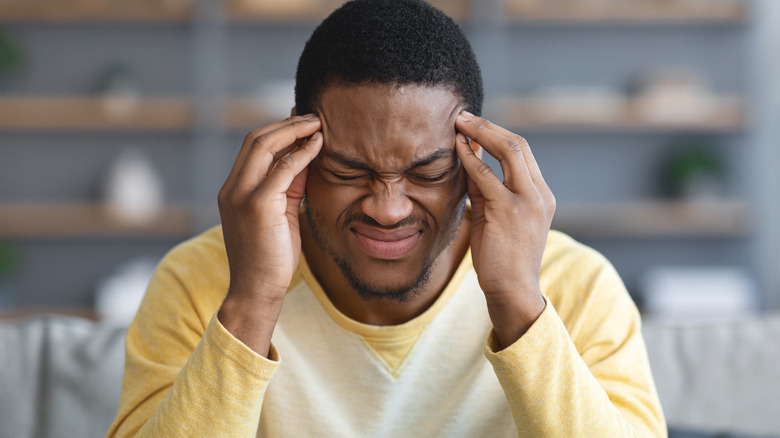The Real Reason You Might Get A Headache After The Flu Shot
While COVID-19 has taken center stage for the past couple of years, flu season is still a thing, and while you can get the flu year-round, cases tend to rise from October to May (via Health). One of the best ways to reduce your chances of getting influenza is by getting a flu shot, according to the Centers for Disease Control and Prevention. Shots are around 40 to 60% effective, depending on the season and the person who gets it.
Some shots contain small amounts of the flu virus, which are dead. Others contain a weakened virus growing in an egg-based formulation, and others include synthetic materials (via Verywell Health). So, if the flu shot is supposed to make you resistant to catching the flu, why is it that sometimes you don't feel so great after getting one? The answer has to do with how your immune system responds to the shot.
Your body is fighting back
Your immune system is pretty powerful, and when it detects any kind of virus, it goes into defense mode and begins creating antibodies to fight it, per Medical News Today. A headache is one of the most common side effects of the shot, and it is normal. Dr. Amesh Adalja told Women's Health Magazine that if you do get a headache after a flu shot, it's a result of your immune system reacting to the shot. Pediatrician Claudia Vicetti, M.D., explained to Prevention that because the flu shot stimulates your body, your immune system may respond in many different ways, including a runny nose, a fever, or a cough.
Most side effects are mild. However, some are more serious than others. If you experience a fever greater than 101 degrees, develop hives, swelling, a fast heart rate, difficulty breathing, or dizziness, call your doctor. Furthermore, flu shots are not recommended for people who are currently sick with a fever or people who have a severe allergy to eggs, per Healthline.


